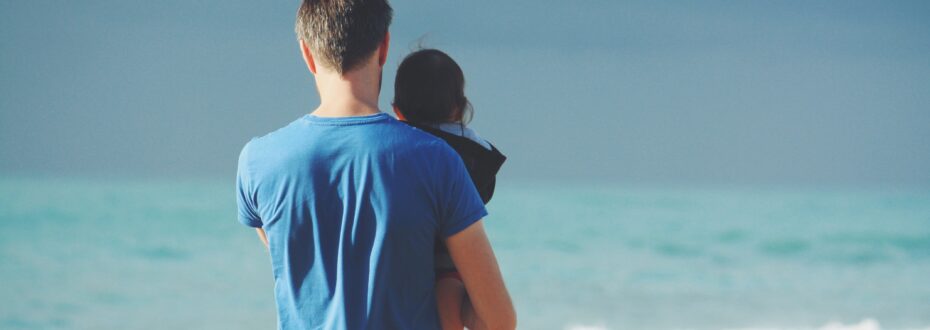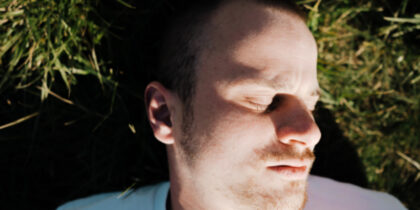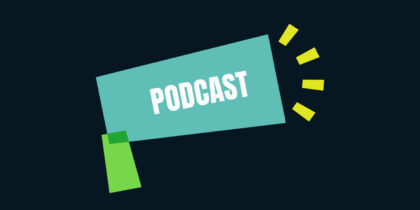My name is Ashley and I’m married with two children. I was diagnosed with obsessive compulsive disorder (OCD) aged 35, after suffering on and off for over 20 years.
Paternal OCD affected me both during and after childbirth. During the pregnancy stages I was having unwanted intrusive thoughts that the baby my wife was carrying wasn’t mine. At this time I had no idea or diagnosis of OCD. The thoughts were constant and caused lots of angst and doubt, which led to me carrying out various compulsions, ruminating, searching for certainty, looking back around the months when he was conceived.
Although you see the “what if’s” as irrational, the power of the anxiety and ruthless uncertainty it provides makes one engage with it. This leads to a horrid loop of compulsions, which only provide the OCD with the food it craves. This went on constantly, and into the night, like loud music that you could not quieten down. This caused sleep deprivation, which meant at times I was functioning only on 3 hours sleep a night.
Although you see the “what if’s” as irrational, the power of the anxiety and ruthless uncertainty it provides makes one engage with it.
With OCD, it’s often a secret illness. The person who is struggling can hide it well, and appear ‘okay’ where in fact the mental torture is incredibly painful.
When baby came along, the OCD took a new form; a fear of harm happening to the baby. At night time I would constantly check that the blankets hadn’t gone over the baby’s head. This would last right through the night, because every time I checked, it was never enough: when I left the room, the uncertainty would creep back in that blankets had gone onto the baby’s face, and I would get images that it had. It was exhausting and how I managed to cope working full-time is, looking back, beyond me. The doubting of whether baby was mine also crept back in: looking for signs, comparing faces, eyes etc.
When the children were older, aged five and three, I had horrific thoughts that I had harmed them as babies. The images were awful, and caused very severe anxiety, which lead onto compulsions to try and work out if they were real or not. I also used alcohol, often drinking eight pints a day as this dampened down the thoughts. I tried drinking lots of water as I felt this would flush them away.
The images caused very severe anxiety, which lead onto compulsions to try and work out if they were real or not.
Every effort I put into trying to rid myself of anxiety, thoughts and uncertainty, led onto the OCD become stronger, along with the huge anxiety. I was starting to crumble. My functioning had gone down, I was only managing to work three hours a day, and I had lost over a stone in weight. Panic attacks began to creep in, along with social phobia. I was unable to leave the house: I was at crisis point.
I decided to seek help, and went straight to A&E who referred me to an on-duty psychiatrist who diagnosed me with OCD and explained that I hadn’t harmed anyone, and in fact it was OCD convincing me that I had.
I was referred to evidence-based treatment with a psychologist, which is Cognitive Behavioural Therapy for OCD, and was placed onto a six-week waiting list. During this period, OCD was strong and told me that they were all wrong. It told me that if I attended therapy, they would say it wasn’t OCD, but that I am a bad person, and lock me away! So I rang and cancelled the appointments.
Every effort I put into trying to rid myself of anxiety, thoughts and uncertainty, led onto the OCD become stronger, along with the huge anxiety. I was starting to crumble.
I then researched OCD and looked at how it all worked, and it was like a lightbulb moment. I could see how it manifested itself. I saw that if you change the way you respond to it, by not carrying out compulsions and allowing thoughts/uncertainty to be there, it does get better. So I decided to challenge it, and worked hard at resisting compulsions. After a bumpy start, nine months later I had regained my life from the debilitating disorder, and have remained free for the last 12 years.
The type of therapy I used is the one recommended for the treatment of OCD (cognitive behavioural therapy), including exposure response prevention. I learnt what was happening cognitively when thoughts came in and what I had to do to change my response to them. I also practised exposure to my unwanted thoughts, and used imaginary exposures. In this way I headed in the direction of fears, rather than trying to escape from them!
I learnt what was happening cognitively when thoughts came in and what I had to do to change my response to them.
Men can and do get OCD during the maternal stages during and after pregnancy, and thoughts can take many manifestations. Although it is called paternal OCD, it is the same as perinatal OCD, a term used for mums. The Royal College of Psychiatrists have a fantastic article about how it can affect parents, which states that cases amongst fathers have been reported.
My personal view overall is to ensure that people get a diagnosis of OCD at an earlier stage in life. We also need to make people aware that it is possible that OCD may rear its ugly head during maternal stages, and that good help and support is there if this is the case.
I would also like to see during antenatal classes, an inclusion of mental health awareness for dads, and to include father’s mental health with health visitor. As it stands, dads are often forgotten. Nobody asks “how’s dad?”, as the focus tend to be on the mum’s and baby’s welfare.
I also think a screening process of both parents should be introduced to see how they are coping, as this would enable earlier intervention.
Learn more about how mental health can affect fathers. If you require support, our list of contacts may be able to help.




